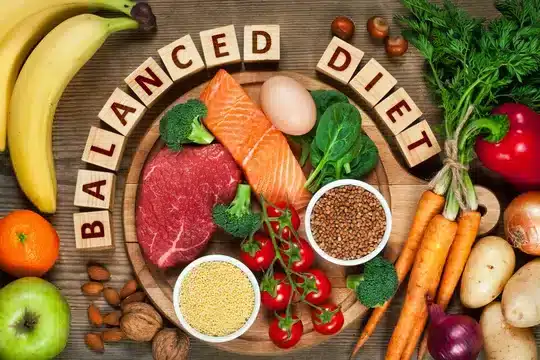A balanced diet is vital to a healthy lifestyle, as it ensures that your body has the nutrients and vitamins it needs to function at its best. Without proper nutrition, you run the risk of developing a variety of diseases such as diabetes and cardiovascular disease. Without adequate nutrients, your physical health will quickly deteriorate, so it’s imperative that you include fruit with every meal and drink plenty of water daily. The benefits of a well-rounded diet are countless, but let’s start with the most obvious. A balanced diet ensures that your body is receiving all of the nutrients and vitamins it needs to function at its best. Without these nutrients, your physical health quickly deteriorates. It may take years for you to realize that you’re suffering from an unexpected disease or condition brought on by a lack of nutrition.
Diseases such as diabetes, cardiovascular disease, and cancer are all caused by a lack of nutrition. If you’re not providing your body with the nutrients it needs on a regular basis, you run the risk of developing one of these diseases, some of which can be fatal. According to https://nutritiondietnews.com/ balanced diet also helps you lose weight and maintain a healthier weight in general. If your body is receiving too much or too little of certain nutrients, you may start storing fat because your metabolism is having trouble processing the food that’s being consumed.
What is a balanced diet?
Balance means that you’re getting all of the right nutrients. If your diet is not balanced, your body cannot function at its best. By following a balanced diet, you are giving your body the nutrients it needs to perform at its best and maintain good health. A healthy diet is one that provides all of the essential vitamins and minerals necessary for you to stay healthy and enjoy life at an optimal level. When your diet is healthy, you feel better, have more energy, and are less likely to suffer from long-term diseases or conditions. You don’t have to be a nutritionist or dietitian to know that having a good diet is important. However, you should always consult your physician before making any changes to your current eating habits.
Importance of a Balanced Diet:
A balanced diet is vital to a healthy lifestyle, as it ensures that your body has the nutrients and vitamins it needs to function at its best. Without proper nutrition, you run the risk of developing a variety of diseases such as diabetes and cardiovascular disease. Without adequate nutrients, your physical health will quickly deteriorate, so it’s imperative that you include fruit with every meal and drink plenty of water daily. The benefits of a well-rounded diet are countless, but let’s start with the most obvious.
A balanced diet ensures that your body is receiving all of the nutrients and vitamins it needs to function at its best. Without these nutrients, your physical health quickly deteriorates. It may take years for you to realize that you’re suffering from an unexpected disease or condition brought on by a lack of nutrition. If you’re not providing your body with the nutrients it needs on a regular basis, you run the risk of developing one of these diseases, some of which can be fatal.
What falls under a balanced diet?
A balanced diet means that you’re getting the right amount of nutrients and vitamins. If your diet is not balanced, you run the risk of developing a variety of diseases. A healthy diet is one that provides all of the essential vitamins and minerals necessary for you to stay healthy and enjoy life at an optimal level. Most of the nutrients your body needs are found in fruits, vegetables, and whole grains. If you eat a healthy diet, you will feel better, have more energy, and be less likely to suffer from long-term diseases or conditions.
If you regularly eat a balanced diet consisting of these foods, there is no need to worry about finding a balance between the number of calories you take in and the calories that you burn. Your body will effectively use the food you eat, and the calories you burn through regular exercise, to maintain your ideal weight.
The importance of a healthy lifestyle:
Having a healthy diet is one of the most important things you can do for your body. Eating a healthy diet doesn’t guarantee that you will never get sick, but it does increase your odds of living a long and prosperous life. A healthy diet helps prevent disease, increase energy levels, maintain an ideal weight, and give people longevity. A well-balanced diet is one that includes a variety of foods that all provide essential nutrients and vitamins. You should aim to eat at least five servings of fruit and vegetables each day. Drink at least 3 cups of water daily. Eat lean meat, poultry, and fish two or three times a week. Eat three or four servings of grains daily, such as whole wheat pasta, brown rice, and quinoa. Use skinless chicken and turkey breasts instead of white meats such as chicken or turkey bacon.
Conclusion:
As you can see, a healthy diet is an important part of your life. One of the benefits of a balanced diet is that your body receives all the necessary nutrients and vitamins and nothing goes to waste. A well-balanced diet is not just about eating food that tastes good, but also about eating foods that contain the right amount of nutrients. When you eat a balanced diet, you feel better, have more energy, and are less likely to suffer from long-term diseases or conditions such as diabetes and heart disease.



